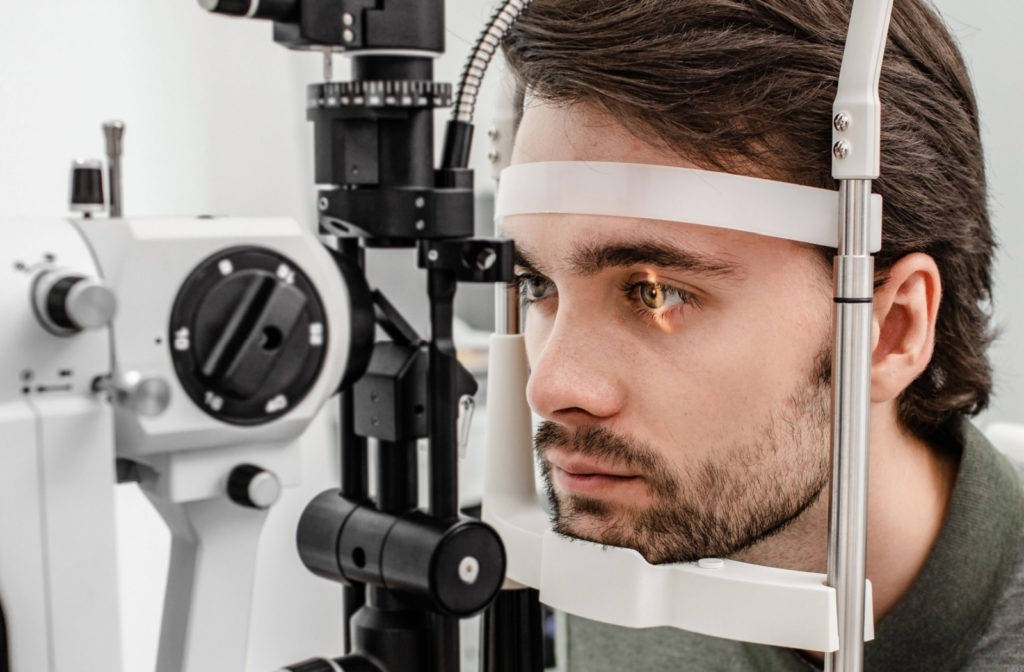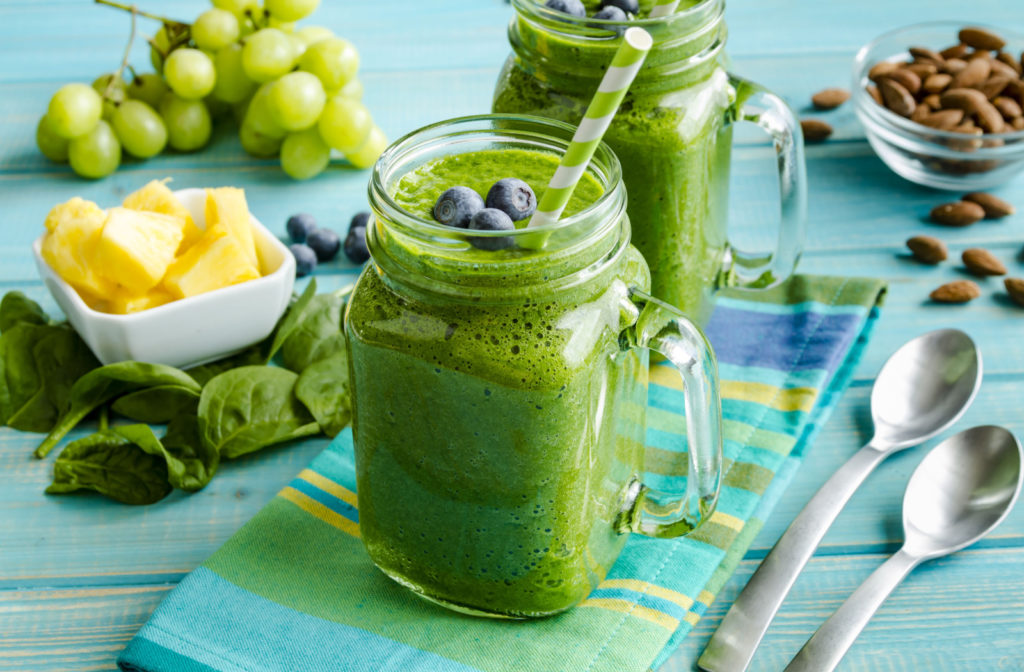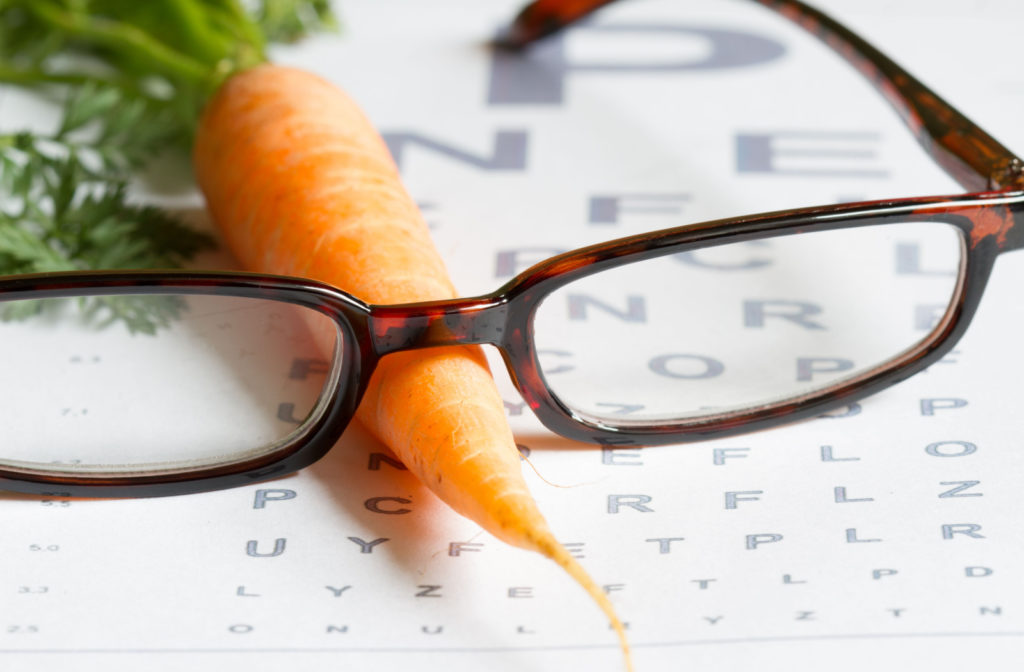We’ve all heard the saying, “Eat your carrots—they’re good for your eyes!” But is there any truth to this age-old wisdom? While dismissing the idea as an old wives’ tale may be tempting, there is actually some science behind the claim. In fact, carrots can play a beneficial role in preventing eye diseases.
Carrots and other root vegetables can nourish your eyes and support healthy vision with antioxidants like beta carotene and lutein, which can help prevent night blindness and other eye diseases.
Balanced nutrition, healthy lifestyles, and routine eye exams are all equally important for maintaining your long-term vision health.
The Science of Carrots & Sight
Let’s start with the science behind the claim. Carrots are rich in beta-carotene, an antioxidant your body converts to vitamin A, which is crucial for maintaining eye health. Vitamin A deficiency can affect your eye’s rod cells, causing night blindness, but carrots help stop that from happening.
Lutein—also found in carrots—helps to protect the cornea (the surface of the eye) and prevent various eye diseases, including cataracts and age-related macular degeneration (AMD).
Other Eye-Healthy Foods
While carrots are a great source of vitamin A, they’re not the only food you should include in your diet to support your eye health. Other orange foods, including sweet potatoes, cantaloupe, and apricots, can all provide a good source of vitamin A too.
Vitamin C
The antioxidants in vitamin C-rich foods can help prevent or delay macular degeneration and cataracts. The foods high in vitamin C include:
- Citrus fruits
- Peaches
- Strawberries
- Tomatoes
- Red bell pepper
Leafy Greens
Leafy greens are rich in lutein and zeaxanthin. These antioxidants can be essential for preventing macular degeneration and cataracts. You can find a healthy intake of lutein and zeaxanthin in:
- Spinach, kale, and romaine lettuce
- Collard greens
- Turnip greens
- Broccoli
- Peas
Omega-3 Fatty Acids
Some studies have found evidence that omega-3 fatty acids may help prevent AMD and dry eyes. Fatty fish like salmon, trout, and sardines are rich in omega-3.
You can also get your omega-3 intake from supplements, but not all supplements are the same, so it’s important to speak to an eye doctor before taking any supplements for your eyes.
How Many Carrots Should You Eat?
So, we know that carrots are good for your eyes. But how many carrots are enough to produce a benefit? It can depend. While it’s true that vitamin A is important for eye health, it’s also a fat-soluble vitamin, which means it can build up in your system over time.
Consuming too much vitamin A can be harmful, leading to toxicity and possibly even vision loss. The recommended daily intake of vitamin A for adults is 700–900 micrograms, which can be met through a varied diet, including carrots and other vitamin A-rich foods.

How to Maintain Good Eye Health
While nutrition plays a critical role in maintaining good eye health, there are other steps you can take to support your vision as well.
Visit Your Eye Doctor Regularly
Regular eye exams are essential for healthy eyes. Many eye problems don’t have obvious symptoms in their early stages, making it hard to detect a problem without an exam. We can test for eye diseases with a variety of diagnostic equipment that can evaluate your complete eye health.
Give Your Eyes a Break
Following the 20-20-20 rule can be a simple habit that brings lasting relief. When you’re working at a computer, you should take a break from your screen at least every 20 minutes and look at something 20 feet away for 20 seconds. Taking screen breaks helps prevent eye strain that can lead to blurry or dry eyes, headaches, and neck or shoulder pain.
Wear Sunglasses
The sun’s ultraviolet (UV) rays can damage your eyes. Wearing sunglasses that block 100% of UVA and UVB rays can protect your eyes from eye diseases and prevent premature aging of the eyes. Wearing a hat with a wide brim can also help reduce the amount of UV radiation that reaches your eyes.
Don’t Ignore Eye Problems
If you notice any sudden changes in your vision, eye pain, redness, or swelling, don’t ignore those symptoms. We can help prevent permanent vision loss with emergency eye care for severe and sudden eye conditions.
Eye Healthy Smoothies

Try out some eye healthy smoothie recipes at home!
We Can Support Your Eye Health
The old adage about carrots certainly holds some truth when it comes to eating for your eyes. However, carrots are not a substitute for routine eye care. Regular visits to LMC Optometry & Eye Care can also help detect early signs of eye problems and provide long-term support for your vision.Schedule your next appointment for a comprehensive eye exam to continue your journey with preventive eye care.



